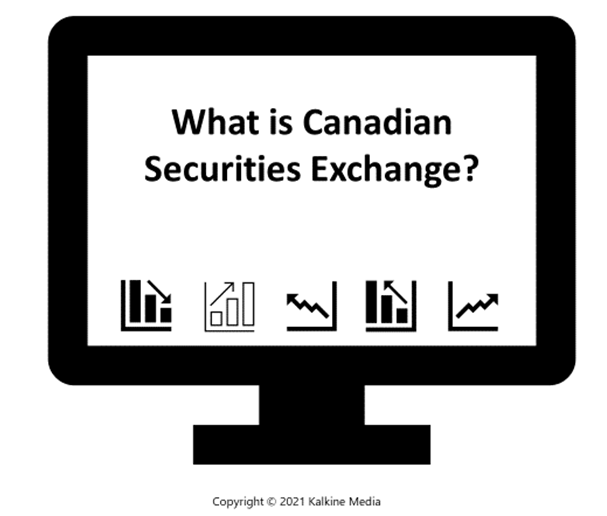Canadian Securities Exchange (CSE)
Updated on 2023-08-29T12:01:08.834976Z
What is the Canadian Securities Exchange (CSE)?
The Canadian Securities Exchange, more commonly known as ‘CSE’ is an electronic stock exchange for up-and-coming and micro-cap companies listed in Canada.
Operated by CNSX Markets Inc, the CSE began its operations in year 2003 and received its approval from the Ontario Securities Commission the next year. It is based in Ontario’s Toronto city, although it is also branched in Vancouver, British Columbia, as well.
The CSE functioned as Canadian Trading and Quotation System Inc (aka, CNQ) in 2004. However, CNQ changed its name to Canadian National Securities Exchange (aka, CNSX) in year 2008.
In January 2014, CNSX rebranded itself once again to Canadian Securities Exchange.
The CSE launched its first continuous auction market to trade listed securities on other Canadian stock exchanges in 2007. Currently, all the securities listed on the Toronto Stock Exchange (TSX) and the Toronto Stock Exchange Venture (TSXV) are traded on CSE as an alternative trading exchange.
Its high capacity and low latency trading environment have enabled the trading community of Canada to take full advantage of advanced trading technologies.
As of June 15, 2021, there is a total of 680 companies listed on CSE, out of which:
- 187 are from the cannabis sector
- 33 are from the blockchain and cryptocurrency market

Summary
- The Canadian Securities Exchange, more commonly known as ‘CSE’ is an electronic stock exchange for up-and-coming and micro-cap companies listed in Canada.
- The CSE began its operations in year 2003 and received its approval from the Ontario Securities Commission the next year.
- In January 2014, CNSX rebranded itself once again to Canadian Securities Exchange.
Frequently Asked Questions (FAQs)
- What is the CSE Composite Index?
The CSE Composite Index is used to gauge the overall market activity on the CSE. It covers approximately 75 per cent of all the equities listed on the platform.
In addition, the CSE Composite Index has a subset, CSE25 Index, which include the top 25 entities as per their market cap.
Solactive AG manages the CSE Composite Index as the calculation agent. The Index Committee directs how the policies and procedures must be interpreted and update the policies whenever required.
Below mentioned are the conditions required to be fulfilled to get included in CSE Composite Index:
- Listing: The companies must trade in Canadian dollars (CAD or C$) and listed on the CSE.
- Size: To be a part of the Index, securities must have a market capitalization of a minimum of C$ 5 million.
- Seasoning requirement: A security cannot be included for the index’s the first rebalance following its listing. It is, however, excluded from this minimum listing period if it is already trading on another renowned exchange, or if it is ranked in the CSE’s top quartile during the rebalance.
- What are the benefits of getting listed on the Canadian Securities Exchange (CSE) over other stock exchanges?
Some companies choose the CSE over other exchanges for various reasons, such as:
- Straightforward requirements: The CSE offers an opportunity to go public for the early-stage companies and seek new investment audiences. The policy manual of CSE is 56 pages, which is much less than that of ASX (190 pages) and TSXV (350 pages).
- A Connected Exchange: CSE is connected to thirteen discount brokers, including six major Canadian banks' discount arms. It displays real-time data on Google Finance.
- Enhanced disclosure: Companies listed on CSE provides monthly progress reports with regular business updates to ensure the investors and other stakeholders are not in the dark.
- Streamlined regulation: The listed companies on CSE are free to make announcements, raise capital and transact without prior approvals from the exchange. It ensures the deals are completed faster and without exchange interference.
- Low and fixed fees: The CSE has fixed fees; there are no scaling fees. If the company has completed a private placement, CSE ensures the raised money is used to grow the business and not pay the exchange.
- How can a resident of the United States trade securities listed on the Canadian Securities Exchange?
A US resident can trade in securities listed on the CSE using these two principal methods:
- US brokers allow their clients to open an international account that enables the account holder to trade freely on the foreign stock exchange. The dealer charges a premium commission fee.
- Most CSE listed companies are also listed on the exchanges operated by OTC Market Group in the United States. The companies have different stock symbol or ticker listed on CSE than those listed in the US.
- Why is the Toronto Stock Exchange considered as Canadian Securities Exchange’s competitor?
The Toronto Stock Exchange is seen as the Canadian Securities Exchange’s competitor, primarily as a technology-focused exchange of Canada, because:
- Unlike the TSX, the CSE offers simple reporting requirements and has reduced the barriers to the listing.
- CSE uses its regulatory model and eliminates the duplication requirements, if any. By doing so, it eliminates the waiting time for transaction approval and review.
- CSE fosters an entrepreneurial spirit, offers better protection to investors, and maximizes liquidity through high regulatory oversight standards and enhanced disclosure.